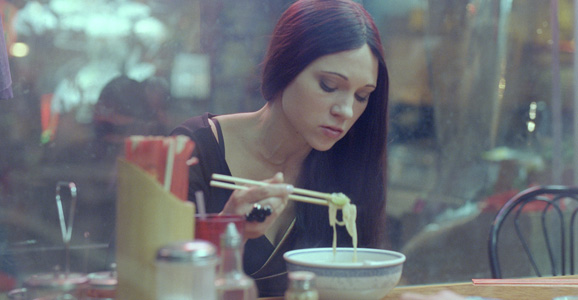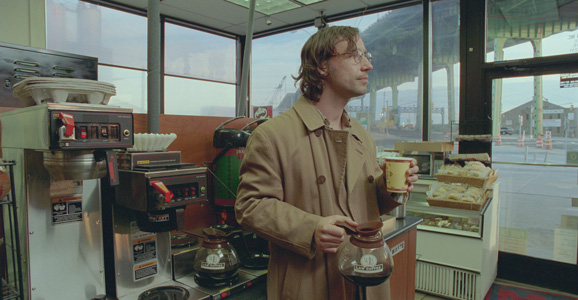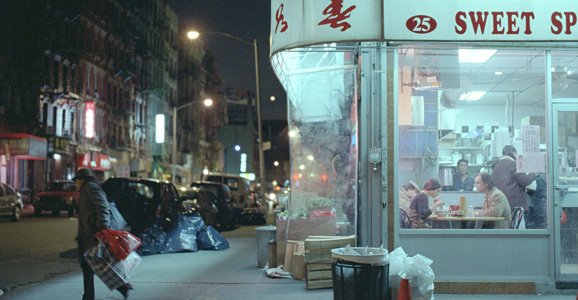







"Das Vaterspiel" / "Kill Daddy Good Night"
by Michael Glawogger
"... etwas, das wir in dieser Art noch nie im Kino gesehen haben." (Jury)
"...crisp cinematography" (Variety)
Grand Diagonale Prize: Best Austrian Feature Film 2008/2009



S-35mm 1:1,85 Digital intermediate
Vienna / Cologne / NewYork
released at Berlinale 2009
Producer:
Tat Film Cologne, Christine Ruppert
Lotus Film Vienna, Erich Lackner
Polaris Films Paris
Newgrange Pictures Dublin
Screenplay: Michael Glawogger
after the novel by Josef Haslinger
Editor: Vessela Martschewski
Cast:
Helmut Köpping
Sabine Timoteo
Ulrich Tukur
Christian Tramitz
Itzhak Finzi
Samuel Finzi
Michou Friesz
Franziska Weisz
Marisa Growaldt
Otto Tausig
Jeremy Strong
Light and camera departments:
Niels Meier, Bernd Mayer, Thomas 'Anton' Antoszczyk,
Ahmet Tan, Borris Kehl, Anne Lisken, Emil Jevtic,
Dennis Krombach, Stefan Hiegemann, Martin Walocha,
Nino Volpe, Anna Manhardt, Bill Amenta,
Toby Miller, Werner Stibitz
Steadicam: Erwin Lanzensberger, Sergei Franklin, Thomas Korda
Development: Cine-PostProduction Cologne
Visual Effects: Pixomondo
Postproduction: Cine-PostProduction Bavaria
Color Grading: Meike Weimann
Die Bergründung der Diagonale Jury:
16 Filme waren es, die wir zur Auswahl hatten. Kinderfilme und Pseudopornos,
Flüchtlingsdramen und Kifferkomödien, Horrorfilme und große
Oper. Am Ende blieb – und wir sind stolz darauf zu sagen: in großer
Einhelligkeit – ein Film übrig. Ein Film, der uns wie kein
anderer, beschäftigt hat, bewegt – und vor allem: beunruhigt.
Ein Film, der einem nichts vorsetzt, sondern zusetzt. Ein Film über
das Töten, eigenwillig und unbequem. In großer Zerbrechlichkeit
will er viele (fast zu viele, denkt man am Anfang) Geschichten erzählen
– und schafft dies auch am Ende; verwebt verschiedene Orts- und
Zeitebenen miteinander; denkt in großer Komplexität über
Familie nach, über Väter und Söhne, Schuld und Sühne,
verknüpft Privates mit Politischem. Es ist die erste Literaturverfilmung
des Regisseurs. 600 Seiten Generationsroman in nur zwei Stunden: Das ist
ein ehrgeiziges Unternehmen. Ein Sohn sucht den Mörder seines Vaters.
Ein anderer will den seinen virtuell ermorden und ein alter Mann hat sich
im Keller lebendig begraben. Ein Gestriger, der im Krieg Tausende Menschen
getötet hat, trifft auf einen Heutigen, der im Computerspiel den
Gegner eliminiert. Der Film stellt schwierige Fragen wie: Ist Töten
Teil unserer menschlichen Natur? Was ist der Sinn von Reue? Was hätten
wir gemacht? Der Film beantwortet sie nicht. Wir bekommen nur Puzzleteile,
versuchen, diese zusammenzusetzen, um das eine, das richtige Bild zu finden.
Aber das eine Bild, das gibt es hier nicht. Und es gibt ein Wort, mit
dem man nicht so schnell fertig wird. Es ist das Wort: Nein. Reue? Nein.
Der alte Mann sagt es, und es ist ein Moment des Schocks, der großen
Irritation; etwas, das wir in dieser Art noch nie im Kino gesehen haben.
Danke, Michael Glawogger, für diesen Film."
Daniel Kasman, the auteurs:
"(...)
A prime counter-example to this result is Kill Daddy Good Night, which
played in the usually less-risky Panorama program, a film that purposefully
provokes puzzlement. An Austrian videogame designer (Helmut Köpping)
who has turned his pathological hatred for his politician father into
a life’s mission to create a father-killing videogame, ends-up,
through a set of curious circumstances, renovating the basement hideout
in Long Island of a Lithuanian Nazi. The plot may sound implausible, but
Michael Glawogger (known for his 2005 documentary, Workingman’s
Death) pitches the story at a very precise level of cinematic wanderlust,
where developments from one scene to the next are charted out by a cryptic
pattern whose lines can just barely be discerned. Of course, the correlation
between this programmer who hates one man and simulates his killing with
the old man who admits to murdering thousands without remorse during the
Second World War are very much in existence—it’s just that
Kill Daddy Good Night doesn’t have a point to make through this
correlation. The way the plot seems to just-quite-not-jibe, the way the
motivations and decisions of all the characters from, our sullen hero
to the silent old man and his gorgeous granddaughter (Sabine Timoteo),
whose past with the programmer indifferently draws him out to New York,
go unexplained and only partly guessed—all add0 up to the best thing
about Kill Daddy Good Night, its concrete materials but its irreducibility.
It simply doesn’t seem to fit together, pieces from a similar but
slightly different puzzle unable to connect, and if the film did come
together, it would immediately crash into a heap of tacky and trite observations
about media, the past, and morality, driven by a half-drawn, insipid drama.
Instead, unlike Double Take, there is something to Glawogger’s
handling of the material (and careful adaptation of Josef Haslinger’s
source book) that makes the gaps, the awkwardness and the brazen allusions
strange and challenging rather than ignorant or ham-handed. Though destined
to be set aside and shrugged off because of this unusual and very fine
sense of puzzlement it creates, Kill Daddy Good Night also remains the
most interesting movie of the 2009 Berlinale."